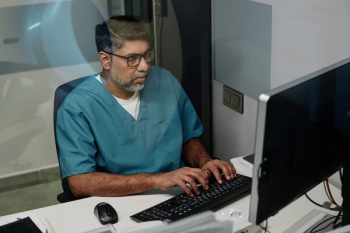
Sentinels of Syntax
Sometimes it’s good to sweat the little stuff.
Not long ago, I wrote a
He was the quintessential elder-statesman physician. A department-chairman emeritus, he could surely have retired in comfort but was continuing in academic medicine for love of the game. He really stood out, since the hospital around him (and most of its staff) had its best days receding in the rear-view mirror. He knew his stuff and wanted to convey it to a new generation. Perhaps with a quiet urgency, if he had sensed that things were deteriorating and thought he might hold back an encroaching tide of mediocrity.
No facet of medicine was too small for his attention. Yes, there was history-taking, physical examination, and other diagnostic/therapeutic wisdom to be shared - but even just sitting and talking with his team, he’d gently correct errors of vocabulary, grammar, and pronunciation. Someone of lesser gravitas might have come across as nitpicky, a “grammar nazi.” But, his aim was nobler than that, of deeper meaning and import.
When he interrupted to advise that you express yourself differently, the message was clear: You’re a physician. When you say things properly, it sounds more like you know what you’re doing. Others will implicitly regard you with greater respect, and you will be more effective in your role as a leader of the healthcare team.
So, for instance, when one of the interns (who was capable, far from a dummy) demonstrated a tendency to overuse the word “basically” whenever presenting a case, it got pointed out as excess verbiage, a nervous habit to be worked on if he wished to appear more polished. Folks pronouncing diabetes “mel-EYE-tis” would prompt a little explanation that “-itis” at the end of a word referred to inflammation, and “MEL-ih-tus” came from Latin, meaning sweet.
I can’t say I adopted every little one of his offerings. It doesn’t matter how much he explained that the original/proper pronunciation of abdomen put the accent on the second syllable (“abDOHmen” instead of “ABduhmen”); saying it that way outside of his purview would just get me looked at strangely. I wasn’t about to join his (some might say quixotic) crusade of protecting the language from entropy.
At least, not then. Time’s moved along, and I think at some point I eventually did. Maybe it’s got something to do with aging; you get more experienced and confident in your knowledge, willing to stick your neck out to correct others - so they’ll look better for their own sake or representing you as a member of your team. Or, maybe you just get less fretful of coming across as old and stodgy.
Whatever the case, 20-plus years later, I sometimes find myself unable to hold back from performing my own rendition of his tutelage. I can’t imagine I do it with the style he did-being fair to myself, I still probably have 15-20 years before I’ll be as old (and hopefully wise) as he was at the time. I imagine that he’d started acting as a Sentinel of Syntax before he got to that age, and maybe even he wasn’t as refined or diplomatic about it when younger.
So, for instance, when I recently noticed that some patients’ imaging studies were being accompanied by documentation describing them as “endorsing” certain signs and symptoms, it, at first, just caught my notice as an odd quirk, maybe a careless slip of someone’s pen. But, then, it happened again and again.
Was the author someone for whom English was a second language? Or had someone gotten ahold of some terminology and misunderstood how to use it? Thought it made him/her sound sophisticated? Was it, indeed, one person, or was the misused word spreading like a virus? Hey, that nurse said the patient endorses fever. I didn’t know that turn of phrase. Maybe it’s a new thing. I’d better start using it if I don’t want to sound like an idiot.
I wanted no part of it. I certainly didn’t want to go ahead and dictate this nonsense into my reports’ clinical histories and, well, endorse this misusage of “endorsing” by even digitally signing my name to it. But, was it my role to selectively edit the clinical information I was given? Better to nip this in the bud and maybe prevent this verbal-virus from spreading any further.
So, I took a couple minutes away from generating RVUs, and shot a message over to one of our physician-extenders: Hey, if you’re not too busy, can we find out who wrote down that this patient “endorses constipation?” Because, unless the patient is actually declaring public support/approval of not being able to defecate, this turn of phrase is wrong.
And please, if we do find out who’s writing this word, encourage him/her to get on the phone with me so I can make this a gentle correction rather than an ego-bruising affair-or, if there is a legit explanation for this turn of phrase, let them educate me about it. Far be it from me to claim I know it all.
I have no idea if the extender ever did have the time, or if the endorsement-happy individual was ever tracked down. So, I don’t know if or how my message was received. I guess I’ll find out the next time I get an imaging study regarding a patient “endorsing” something.
Is being a self-appointed Sentinel of Syntax a complete waste of my time and effort? Lord knows CMS won’t be assigning it a dollar-value anytime soon or even rolling it into any of its “Quality Measure” initiatives. But, if any physician is to take this on, who better than a radiologist, who arguably churns through more written words in a typical day of work than any other specialist?
Newsletter
Stay at the forefront of radiology with the Diagnostic Imaging newsletter, delivering the latest news, clinical insights, and imaging advancements for today’s radiologists.












